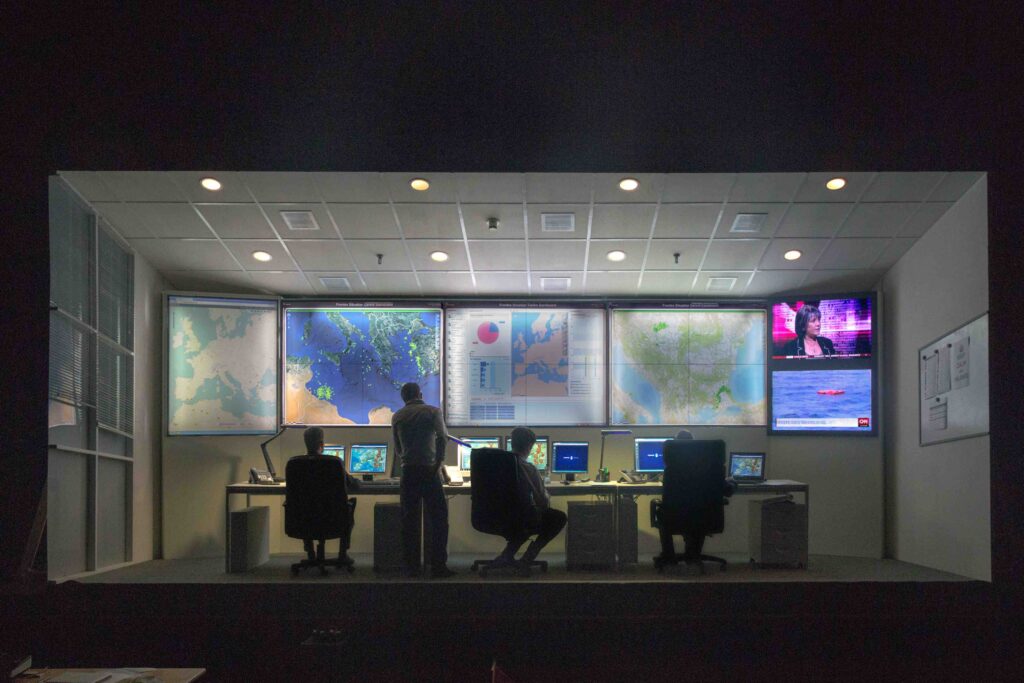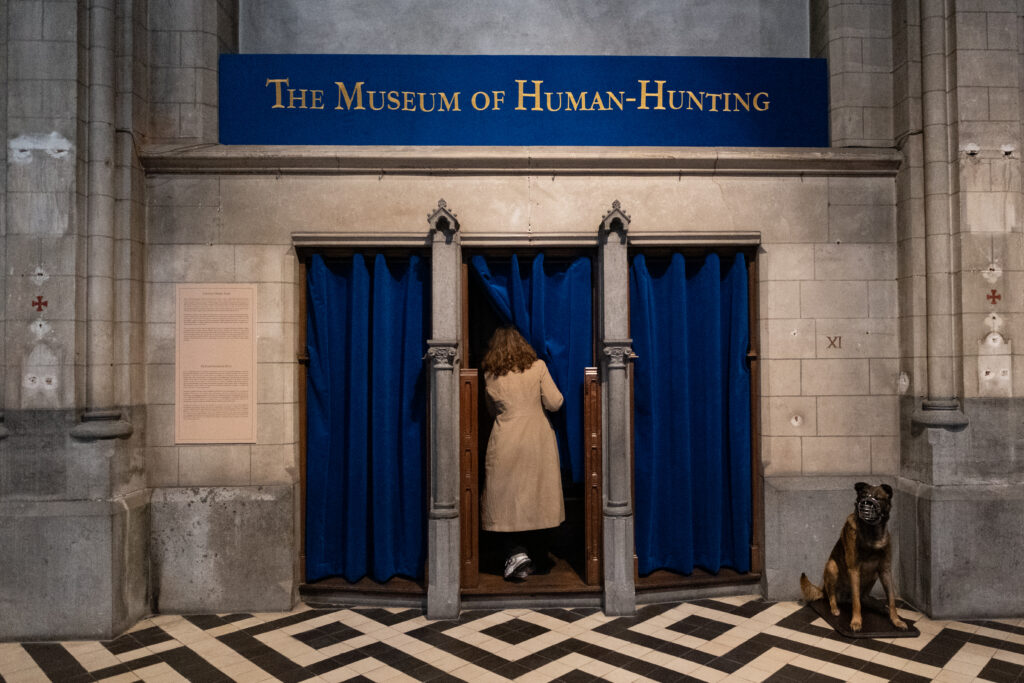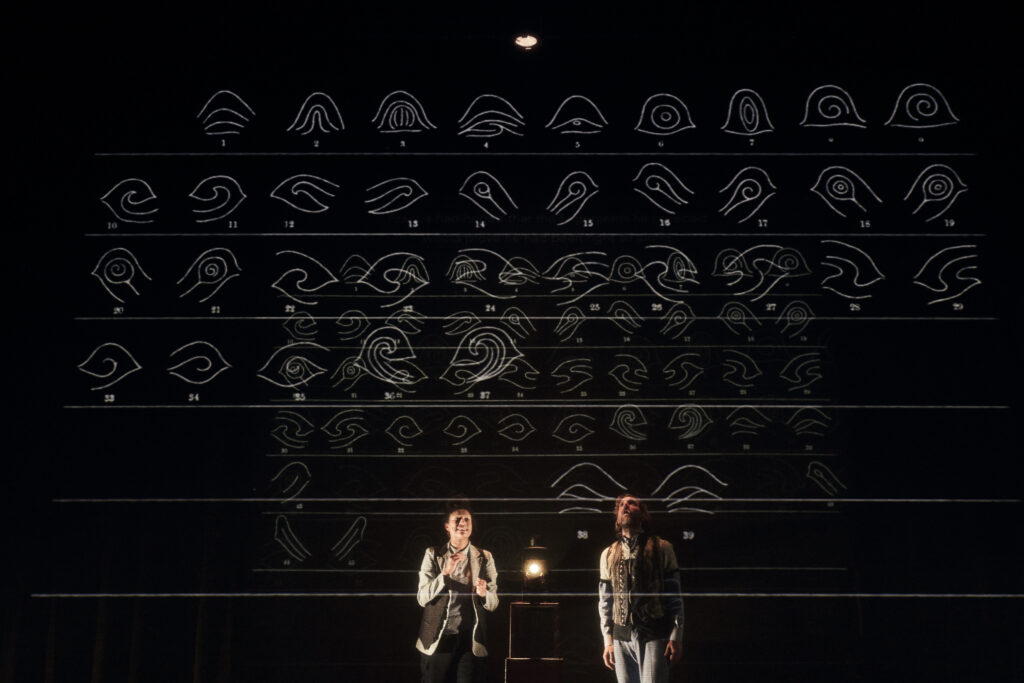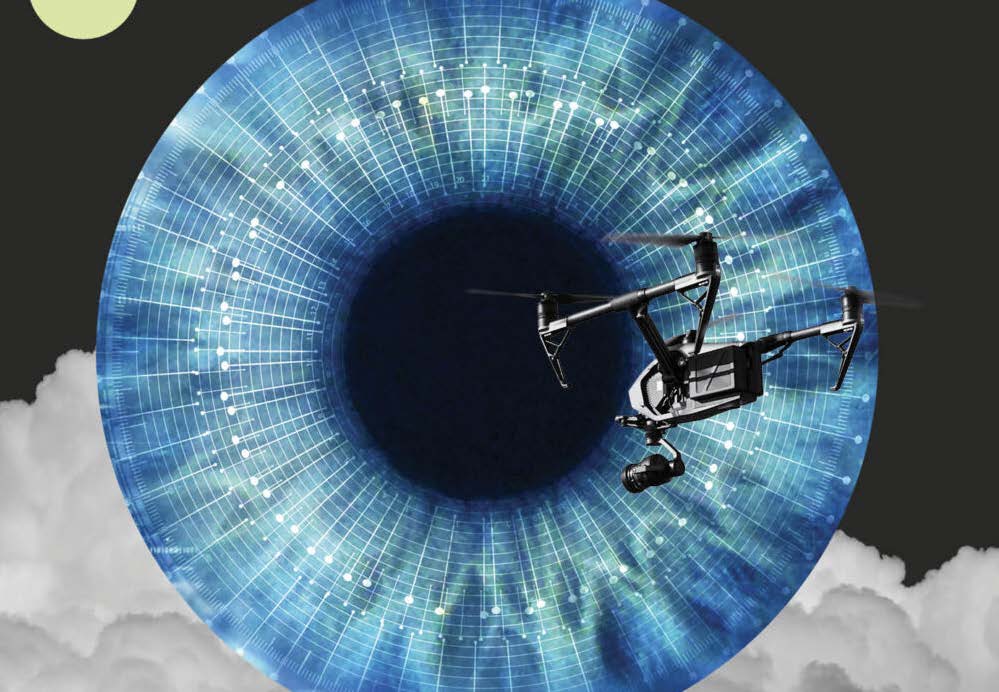We are excited to invite you to an interdisciplinary seminar that brings together critical academic scholarship and artistic practices to interrogate the complex reality of the contemporary European border control regime, and its technologies. Combining scientific and artistic regimes of engagement, the seminar explores how imaginaries of the present and future of digital borders, with their promises of order, seamless governance and frictionless flows of bodily data, are constructed, as well as how the lived reality of administrative, and spatial tactics, policies and technologies of borders unfolds.

The seminar is part of the DiNoBord public seminar series, which started at the Röhsska Museum of Design and Craft in Gothenburg in May 2025 and will continue to Oslo in the early Spring 2026. DiNoBord, an acronym for the research project “Digital Nordic Borders: Unpacking the Contention between Openness and Security in the Nordics”, is an interdisciplinary project funded within the Nordic research program “Future Challenges in the Nordics” and led by prof. Elena Raviola, University of Gothenburg. The project, which is a collaboration between University of Gothenburg, Copenhagen Business School, Oslo Met and ITU (prof. Vasilis Galis and assist. Prof. Vasilis Vlassis), investigates the organizing of Nordic borders in practice and the role of digital technologies, including biometric technologies and other machine learning enabled technologies, in making and remaking Nordic borders.
At the Borders, Bodies and Databases seminar on October 23, DiNoBord researchers Vasilis Vlassis (ITU) and Elena Raviola (University of Gothenburg) will present some of the project results and host internationally-renown researchers and artists in a dialogue with each other and the audience.

In her talk, “Technologies of suffocation: disrupting migrants’ life-support infrastructures”, Martina Tazzioli, Associate Professor in Geography at the University of Bologna, will show how European border regimes deploy “technologies of suffocation” that dismantle migrants’ life-support infrastructures, choking not only their movements but also their capacity for social reproduction and future aspirations. Paul Trauttmansdorff, STS researcher and postdoc fellow at the Technical University of Munich, will talk on” Assembling and Contesting Imaginaries of Digital Borders” and examine how European imaginaries of digital borders, centered on seamless data flows and frictionless governance, are institutionalized through eu-LISA and interoperability projects, while also highlighting their contested, dehumanizing effects and the possibilities for alternative futures.
In the second part of the seminar, theatre and exhibition maker Thomas Bellinck, actress and theatre maker Manizja Kouhestani, and investigative journalist and filmmaker Reza Adib will share material and artistic strategies from the installation ‘The Museum of Human-Hunting’ and their theatre play ‘The Voice of Fingers’. Their collaborative artistic intervention will merge documentary research and live performance to embody and challenge the lived experiences and affective realities shaped by the European border regime.
A mingle reception will follow the seminar. Please, register by sending an email to vavl@itu.dk, so that we can book the refreshments. Please circulate freely and widely.

Participants’ bio:
Martina Tazzioli is an Associate Professor in Geography at the University of Bologna, and the author of “Border abolitionism: migration containment and the genealogies of struggles” (2023). The Making of Migration. The biopolitics of mobility at Europe’s borders (2019), Spaces of Governmentality: Autonomous Migration and the Arab Uprisings (2015) and co-author of Tunisia as a Revolutionised Space of Migration (2016).
Paul Trauttmansdorff is an STS researcher and postdoc fellow at the Chair for Philosophy and History of Science and Technology and the Ethical Data Initiative at the Technical University of Munich. He is the author of the book “The Digital Transformation of the European Border Regime: The Powers and Perils of Imagining Future Borders”, published with Bristol University Press in 2024.
Reza Adib trained as a journalist at the IRNA news agency in Mashhad and at Fanoos University in Kabul. He has worked as a news editor for Ayna TV and as an editor-in-chief for Noorin TV. During the 2009 elections, he served as a media advisor to future Afghan president Ashraf Ghani. Since 2013, Reza has been developing his own work as an independent investigative journalist and documentary filmmaker, collaborating with such partners as BBC and ReFOCUS Media Labs.
Thomas Bellinck is a Brussels-based artist who creates performances and installations based on audio recordings, with a strong focus on memory politics, state-sponsored violence and practices of detention. He is a founding member of documentary theatre company Steigeisen, the artistic production platform ROBIN and The School of Speculative Documentary. Since 2015, Thomas has been working on ‘Simple as ABC’, a growing series of performances and installations on mobility injustice and border violence.
Manizja Kouhestani is an actress and theatre maker who trained at the Royal Academy of Fine Arts and Conservatoire in Ghent. She has performed in various productions by renowned Dutch and Belgian theatre collectives, such as Dood Paard, De Warme Winkel, TG Stan and De Roovers. In 2023 she appeared in the English-language version of ‘The Voice of Fingers’ by Reza Adib and Thomas Bellinck. Together with Fiene Zasada, Manizja is currently touring with their own production ‘My Nemesis’.
The event will be streamed, please find the link to the the teams meeting here.
Title: Borders, (im)mobilities and databases.
Date: October 23rd.
Time: 13-16, followed by reception.
Location: IT University of Copenhagen, Rued Langgaards Vej 7, 2300, Copenhagen, Auditorium 3.
